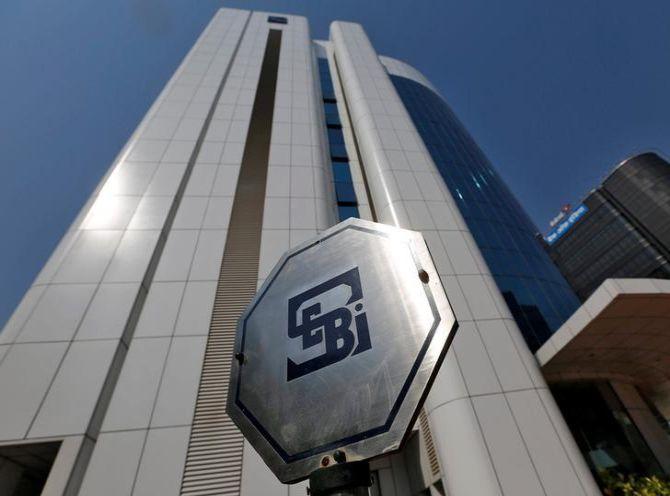To make sure liquid schemes reflect the underlying portfolio risks, Sebi has said all debt papers with maturity of 30 days or more to be marked to market. Earlier, fund houses didn’t have to do so for securities that had less than 60-day maturity.

The Securities and Exchange Board of India has tightened the valuation methodology for liquid mutual funds and did away with the open offer exemption given to those seeking to acquire assets undergoing insolvency resolution.
To make sure liquid schemes reflect the underlying portfolio risks, Sebi has said all debt papers with maturity of 30 days or more to be marked to market. Earlier, fund houses didn’t have to do so for securities that had less than 60-day maturity.
The move comes in light of the redemption risks faced by liquid schemes after the Infrastructure Leasing & Financial Services (IL&FS) crisis rattled markets.
Sebi has also restricted open offer exemptions to only scheduled commercial banks and financial institutions in debt restructuring cases. The exemptions will not be available for acquisitions of shares by “persons” other than lenders in case of allotment by the target Company or purchase from lenders.
The move would impact those corporates who are undergoing resolution through the asset reconstruction companies (ARCs).
At present, ARCs who take control of sick companies are permitted to convert a portion of debt into shares of the borrower company as a measure of asset reconstruction. This may potentially derail the talks between UAE-based Etihad and debt-saddled Jet Airways. Etihad had asked waiver from the open offer for increasing its stake from the existing 24 per cent.
According to the resolution plans, the banks led by State Bank of India are likely to hold 51 per cent stake in Jet.
Open offer exemption given to companies undergoing resolution plan under Insolvency and Bankruptcy Code (IBC) will continue in supervision of National Company Law Tribunal (NCLT).
ARCs looking to convert debt into equity, too, would be hit.
“ARCs and other lenders (except scheduled banks) who hold bad loans of firms that have gone into the old corporate debt restructuring process won't be able to avail the takeover code and pricing exemption anymore. Takeover code exemption for those undergoing insolvency resolution continues to apply, which is good," said Bhavin Shah, financial services, tax leader, PwC India.
Sebi also said that only a court or a tribunal is allowed to provide any such exemptions. Experts said the move would increase the cost of acquisition for those buying listed stressed firms.
Challenging time for MFs
Sebi said the difference allowed between valuation and reference price had been reduced and papers below investment grade now need to have uniform valuation across the industry.
"The release states that schemes can now value debt securities with variation of 0.25 per cent. This means, if the prices fluctuate, the difference can't be more than 0.25 per cent. Earlier, the difference was under 0.1 per cent. The debt papers below investment grade were earlier allowed certain discretion on the valuation front," said Dwijendra Srivastava, chief investment officer of debt at Sundaram MF.
According to industry officials, different mark-downs taken by fund houses on recently downgraded papers might have prompted the regulator to come up with tighter norms for below-investment grade papers. As fund managers shift their portfolio to shorter-term papers to avoid mark-to-market risks on their portfolio, the yields on liquid schemes could moderate.
"The returns for liquid schemes could moderate as shorter-duration papers typically have lower yields. The spreads between 30-day and 60-day papers could widen as the demand for the latter contracts," said R Sivakumar, head, fixed income of Axis MF.
The changes are likely to make managing liquid schemes a costly affair for MFs. "Holding shorter-maturity papers means more transactions and more portfolio turnover. This along with the stamp duty will significantly increase the transaction costs for liquid schemes," said Sivakumar.
Market participants say the shift in liquid schemes' maturity profile would pose challenges for borrowers tapping the shorter-tenure debt segment.
"For borrowers, the challenge will be to realign their liability profile," a fund manager said. Liquid schemes have seen high volatility in flows after the IL&FS crisis.
The schemes have seen an outflow of Rs 1 trillion since September. At the end of January, these assets under management of such schemes stood at Rs 5 trillion, accounting for 22 per cent of the industry’s assets.
The Sebi board also cut regulatory fee rate for stock exchanges by 80 per cent. Fee for stock brokers was cut by 33 per cent to Rs 10 for those with turnover of Rs 1 crore. Fee levied on filing and re-filing of issues was slashed by 50 per cent. The new fee structure would come into effect from April 1.
To make infrastructure investment trusts (InvITs) and real estate investment trusts (Reits) attractive, Sebi increased the leverage limit for InvITs from 49 per cent to 70 per cent, subject to additional disclosure. It also provided a separate framework for privately placed unlisted InvITs to provide flexibility to issuers and investors.
The minimum net worth requirement for a debenture trustees was also increased to Rs 10 crore from Rs 2 crore. Sebi also granted permission for permanent registration of custodians instead of renewal every three years.
Photograph: Shailesh Andrade/Reuters.












 © 2025
© 2025